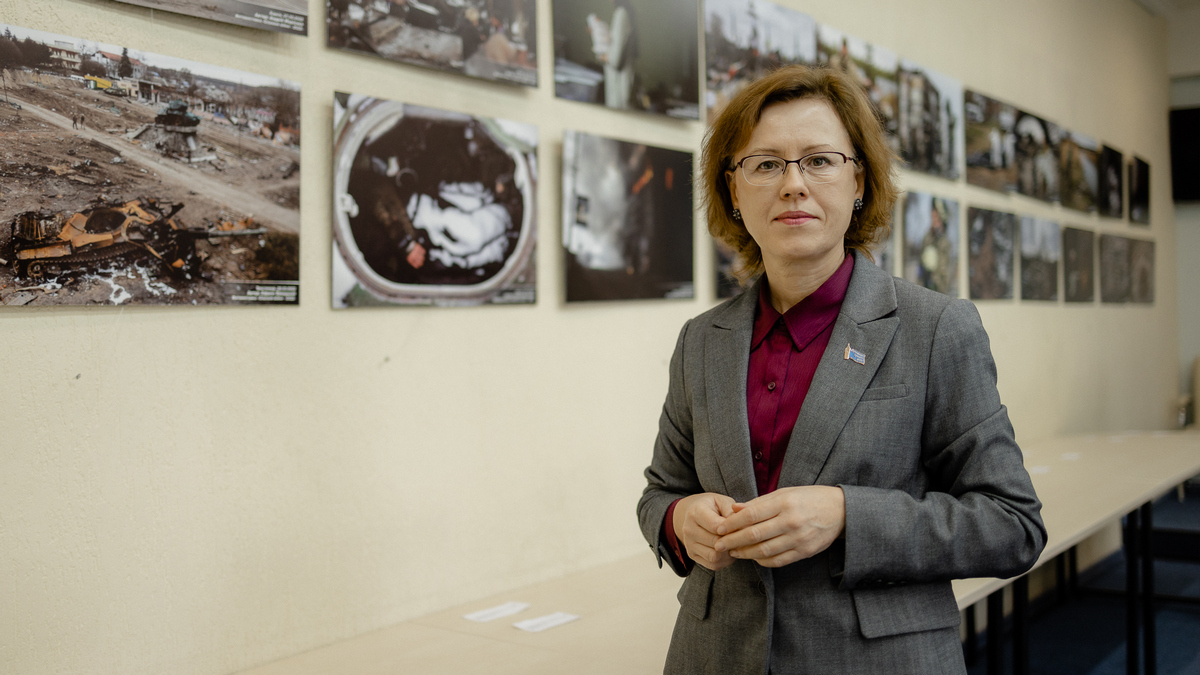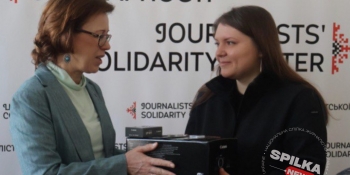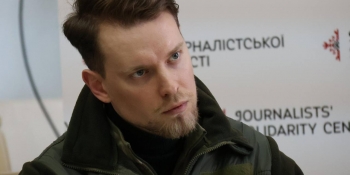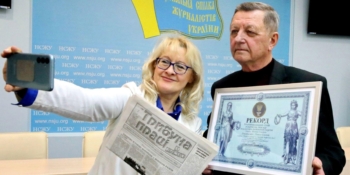For six years, the National Union of Journalists of Ukraine (NUJU) supported the adoption of a law that would implement EU Directive 2018/1808 on audiovisual media services. However, the law On Media consists of only 10% of the norms of the European directive and 90% of the innovations of Ukrainian lawmakers. Therefore, the first thing to understand about the new law is that it goes far beyond EU requirements.
This was emphasized by Lina Kushch, the First Secretary of the NUJU, in a comment to Vox Ukraine.
In her opinion, on the one hand, Ukraine needs to modernize media legislation, which in many respects does not correspond to new realities. On the other hand, this update should strengthen freedom of speech, not narrow it. The adopted law On Media strengthens state control in this area and provides the authorities with new tools for such influence.
1) The National Television and Radio Broadcasting Council now regulates not only audiovisual media, but also print media, online media, online cinemas, cable TV providers, etc.; has the authority to send requests to social networks and search engines. The NUJU advocated the removal of print and online media from the regulation of this law, as such regulation seems excessive and does not correspond to common European practice.
2) The same sanctions apply to all media – both those that use a limited frequency resource, and print and online media: prescription, fine, publication ban or license cancellation. At the same time, the prescription, for example, is issued without verification, without the editor’s right to justify its position. Sanctions are equally severe for everyone, although the audience of television and printed newspapers is incomparable. For printed publications, such sanctions are a completely new means of control. Re-registration of printed publications and provision of information on the ownership structure are also new requirements.
3) The main caveat is the political dependence of the national regulator. The National Council consists of eight members, four of whom are appointed by the President and four by the Verkhovna Rada. The national regulator does not include representatives of the media industry, journalistic organizations or civil society. This body, on which all the media now depend, forms the government and maintains control over it.
4) Complex and large in scope, the law On Media will encourage editors to refrain from covering hot topics, and journalists to be more careful in their statements. It will be difficult to defend one’s right to editors, especially local editors who do not have the funds for expensive lawyers. This encourages journalists to look for other platforms to express their views, and media owners to close their media outlets.
According to Halyna Petrenko, the director of the Detector Media, the legislation under which the Ukrainian media worked has long been morally outdated. In particular, it did not take into account the existence of OTT platforms and, in general, did not take into account the degree of development achieved by Internet media in Ukraine. Therefore, according to the expert, the law On Media is definitely timely. It is the first time in the history of Ukraine that Internet media is given the status of media. And it does it in a fairly balanced way. For example, for all types of media, it proposes a new form of coexistence of market participants and the regulator — co-regulation — when some important work rules are proposed to be developed and implemented by the joint efforts of the state and the media.
Ihor Rozkladai, a co-author of the law 2849-IX / deputy director / chief expert on media law of the Center for Democracy and the Rule of Law, believes that there are several prerequisites for the adoption of the new law On Media. Even in the Association Agreement, there was a requirement to update the audiovisual legislation and synchronize it with the directive on audiovisual media services (this had to be done by September 1, 2019). There are also internal reasons for change. According to the expert, the previous law on television and radio broadcasting was very outdated. In fact, it regulated only radio and television. Everything related to the Internet, including Internet television, was in a “wild” state. This created an uneven playing field, as online press and online broadcasters operated without any rules or safeguards. And according to surveys, the number of users consuming information online is growing rapidly.
Ihor Rozkladai does not consider the risk of politicization of the National Council to be critical. The appointment of members of the National Council is described in the Constitution, and the Constitution cannot be changed either by the media law or during martial law. This law introduces the procedure for appointing members of the National Council by the president through the creation of a competition commission. The commission must analyze the candidates and the president must appoint members of the National Council based on the commission’s recommendation. Decent salaries are also laid down as a safeguard.
NUJU information service
























